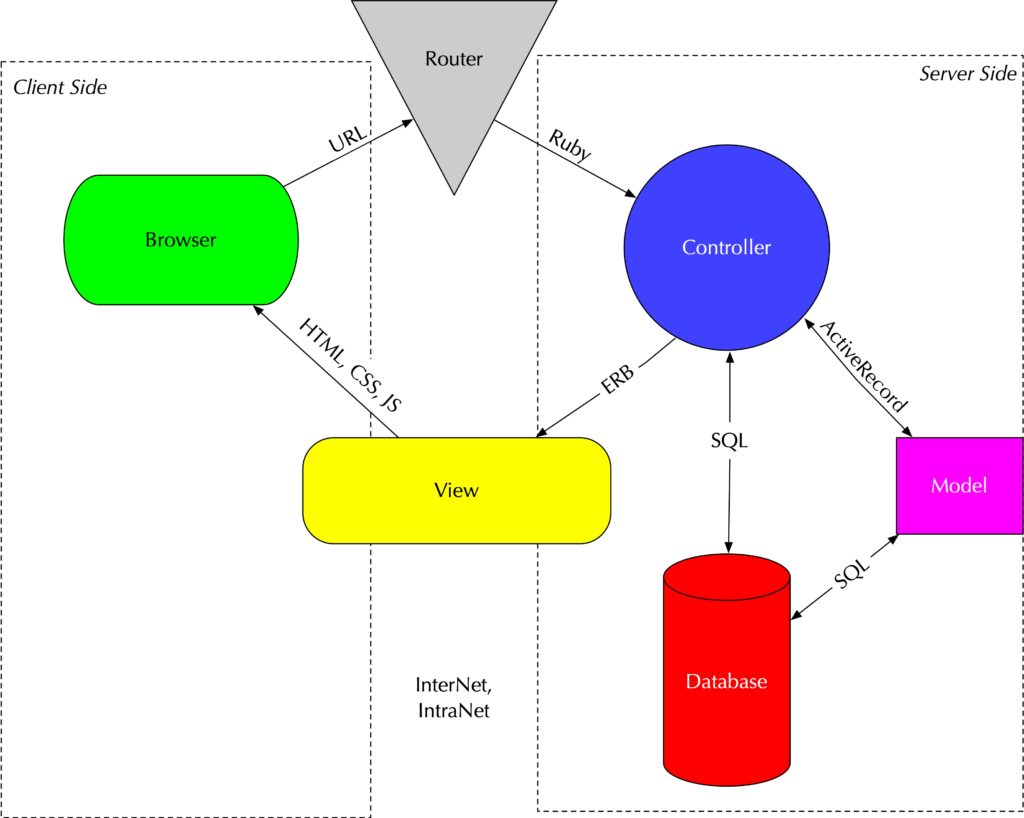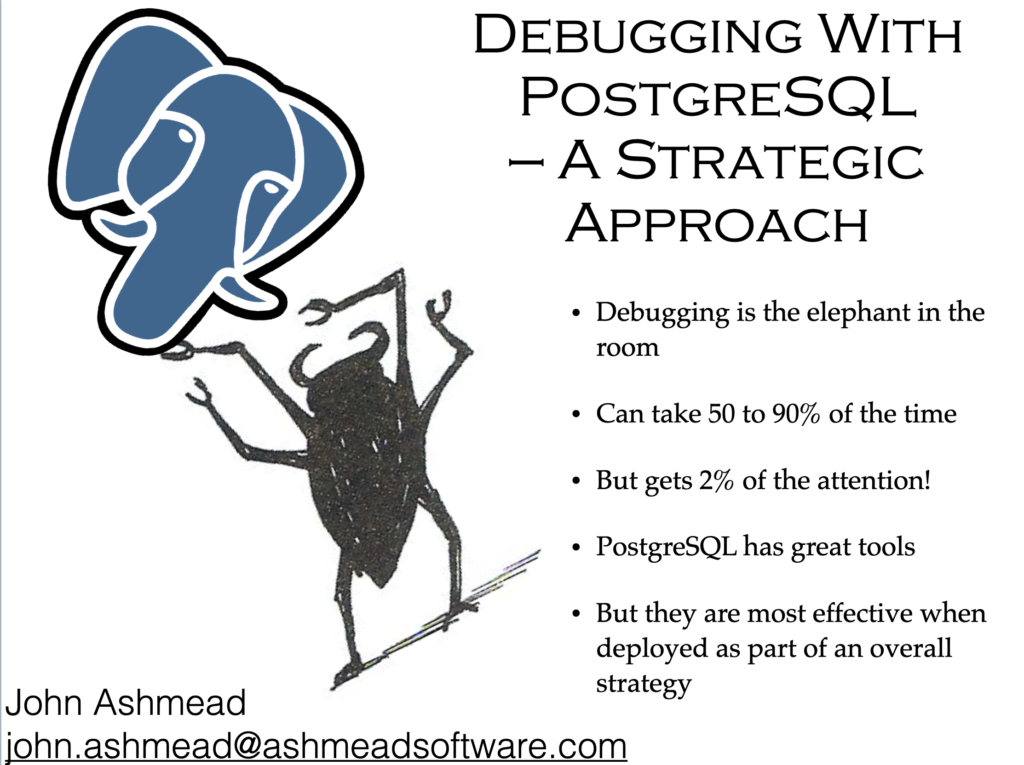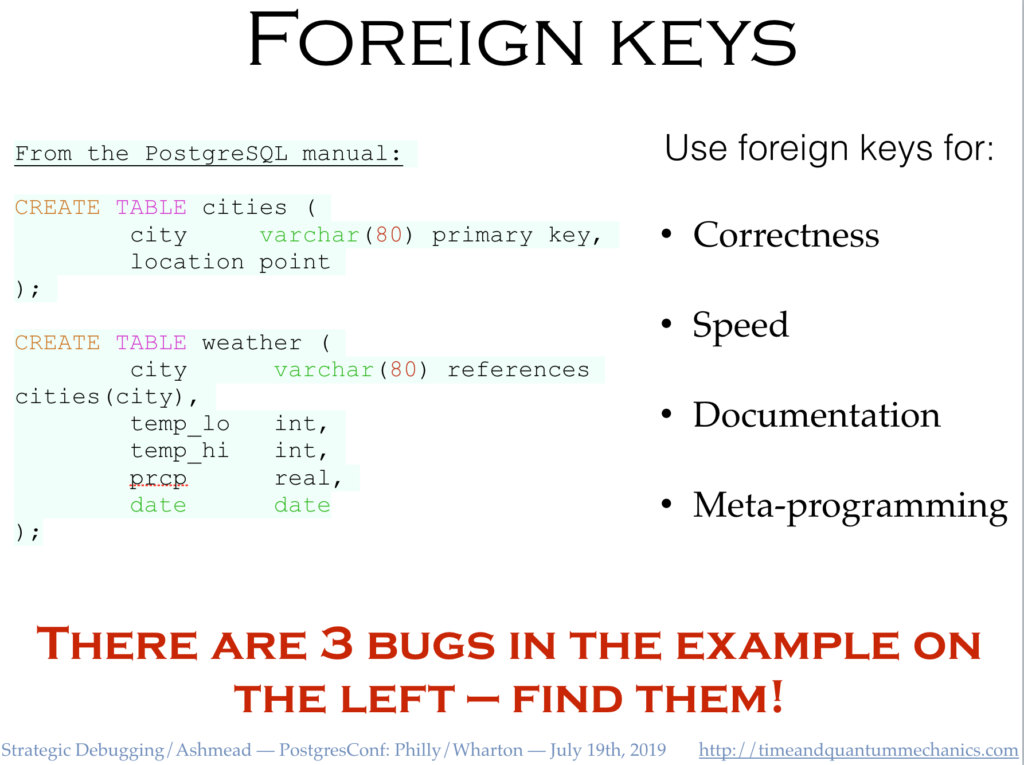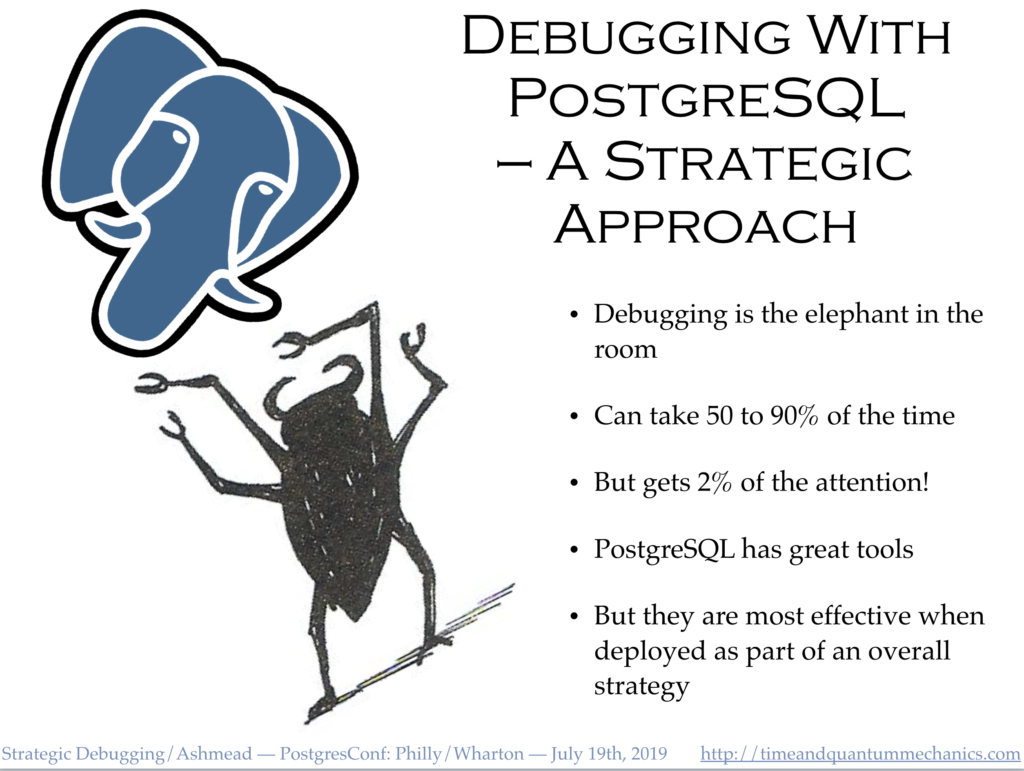How to build a PostgreSQL-backed website. Quickly.

So you want to build a website? Quickly! But able to grow to arbitrary size, if fortune smiles.
I’ve been working on just such a website, one which runs the manufacturing process for a world class optical switch manufacturer. They started in 2005 and are now the 2nd leading producer of optical switches. So zero to hero. They started with Ruby-on-Rails & are still running the original code. With a few hacks of course, many of which I built.
So, time for a talk on how to do this. The 2021 PostgreSQL Conference Webinars in the person of Lindsay Hooper was kind enough to extend an invite & I put something short together. I gave the talk earlier today as a webinar. Very happy with the way it came out; it provides a short introduction to how to get started on this, from the database perspective:
I show how to get started building a PostgreSQL-backed website using Ruby-on-Rails, what is meant by the Model-View-Controller architecture, why we want to use that, what tools you need to get started; how to work with the online tutorials; what kind of workflow to use, and which tasks to let Ruby-on-Rails handle versus which are better done by PostgreSQL.
The conference will be posting the video of the webinar in a few days. Meanwhile, I have exported the slides as a PDF up on slideshare.
And if you are wondering what the illo has to do with the talk, it’s a breakdown of the pieces of the Model-View-Controller architecture as it applies to Ruby-on-Rails/PostgreSQL. If you are going to do this, it is the map which is your world.


